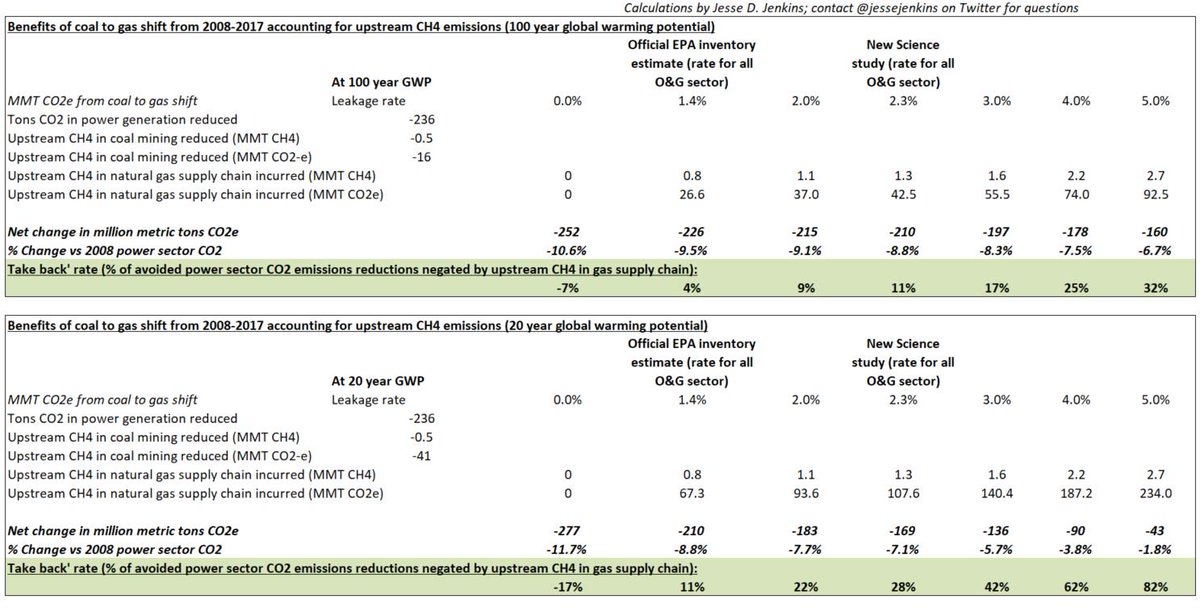1. Without accounting for upstream methane (CH4), I estimate that shift from coal to gas in US power generation from 2008-2017 cut CO2 by 236 million metric tons (MMT) or ~10% of 2008 total power sector CO2.
(Note those estimates are for whole oil & gas sector. I'm assuming they apply proportionately to gas as oil, but that's an assumption for simplicity, so caveat emptor)








